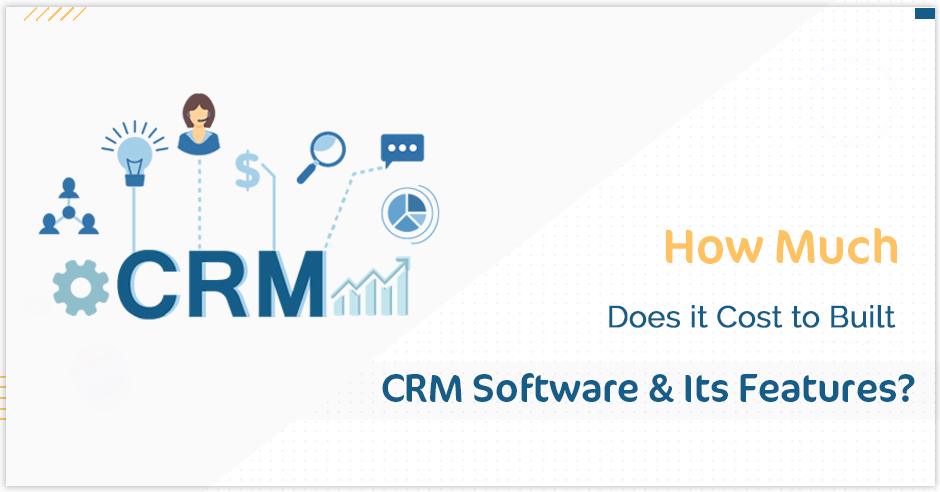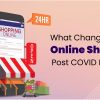The term CRM (customer relationship management) software brings to mind solutions like Salesforce, Microsoft Dynamics, and SAP. They are enterprise CRM platforms with advanced features. But your company may not need enterprise functionality plus you may have your own unique needs and requirements.
Therefore, you can consider hiring a software development company to build a custom CRM application for your business. For this, you need to know the baseline capabilities you wish to implement and the development expenses for them. This article helps you with both aspects.
Types of CRM Software
Software developers know that there are four main types of CRM programs:
Collaborative solutions – These help to sync communication with consumers across phone, website, email, and social sites.
Strategic solutions – These capture customer data in a knowledge database to support the fostering of long-term consumer relationships.
Analytical solutions – These analyze consumer data delivered by an operational CRM tool to help you learn about customer behavior.
Operational systems – These focus on sales, marketing, and service automation, and assist to meet short-term goals.
In fact, all of the above platforms are interlinked. This is true especially in enterprise-grade CRM applications that include multiple modules to meet the needs of each business workflow.
Main Functionalities of CRM Software
An operational CRM program helps to improve business procedures across marketing, customer support, and sales departments. Let’s consider the main features needed for each process:
CRM Functionality for Sales Teams
A custom software development companies can create sales automation functions that can help your sales team to close more number of successful deals with your clients. These capabilities include opportunities, leads, and accounts.
Lead and Account Management
A good CRM solution enables you to efficiently manage customer profiles. Sales teams can handle information about current customers, including new leads, turn them into promising opportunities, and produce fresh accounts based on winning deals. For this, sales managers should be easily able to add customer details like name, email, phone number, comments, the status of negotiations, and client ratings.
Sophisticated Sales Analytics
A software company can build this vital feature that enables sales agents to see sales trends on diagrams and configurable dashboards. You can use a drag-n-drop interface to effortlessly input data in tables or diagrams. Plus, you can represent the data more clearly by using filtering tools to mark the information by location, timeline, and color. Sales managers can upload and merge data from external databases and spreadsheets. In addition, they can directly communicate with other sales agents about the stats and data.
CRM Features for Marketing Teams
A software development company can build a marketing automation module to help marketers plan and execute marketing events to engage leads and prospects. The module can include the following functions:
Management of Marketing Campaigns
Marketers can create relevant campaigns that include multiple events and add event-related details to those campaigns. Plus, they can attach marketing materials, spreadsheets, and invoices to each event. Marketers in a team can communicate with each other using inbuilt messaging and email features.
Customer Segmentation
Marketing teams should be able to segment consumers and identify profitable groups among them. For example, marketers can group customers based on their interests and behavior. This capability is generally created in charts that marketers can analyze, modify, and filter.
CRM Tools for Customer Support
Software developers can create a service automation function to support agents in handling client communications. All engagements with customers via phone calls, tickets, email, and social messages are stored in a secure repository.
Agent Console and Help Desk
Support agents are given a centralized interface to see customer queries that come in via messages, tweets, chat, and email. A sophisticated help desk allows agents to prioritize and delegate tickets. The help desk should also permit them to label tickets and create ticket groups.
Knowledge Base
A custom software development company can help to craft a knowledge base which is a convenient self-service tool for customers that can assist to reduce to the number of queries to agents. The software company can create the knowledge base using responses to common and frequent queries, and allow consumers to search and find answers easily in it.
Cost of Developing CRM Features
Now let’s take a look at the average cost of developing each CRM feature:
Accounts, leads, opportunities, contacts, pipelines, and tasks – $36K to $40K
- Dashboard – $8K to $9K
- Sales analytics – $8K to $12K
- Marketing campaign management – $9K to $11K
- Customer segmentation – $8K to $9K
- Marketing analytics – $8K to $9K
- Agent console and help desk – $24K to $31K
- Knowledgebase – $5K to $6K
- Service analytics – $8K to $9K
Totaling the minimum cost involved for each feature, we arrive at a figure of $114K for the whole package. The advantage is you can include the functionalities you want for your unique needs which you cannot do with a generic CRM software platform.
About ParamInfo
Paraminfo is a leading software development company in India with a global presence. We can build custom software solutions for your business requirements at an affordable cost. Contact us today for more information and learn about the benefits of partnering with us.










